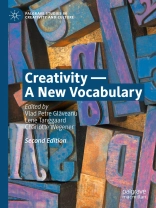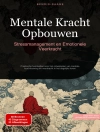Creativity — A New Vocabulary proposes a novel approach to the way in which we talk and think about creativity. It covers a variety of topics not commonly associated with creativity that offer us valuable insights and open up new and exciting possibilities for creative action. This second edition includes six new essays which continue to challenge the traditional vocabulary of creativity and its preference for individuals, brains, cognition, personality, divergent thinking, insight, and problem solving. The book proposes a more dynamic and relational perspective that considers creativity as an embodied, social, material, and cultural process. This book will be useful for a wide range of specialists within the humanities and social sciences, as well as practitioners from applied fields who are looking for novel ways, of thinking about and doing creative work.
Table des matières
Chapter 1: Why Do We Need a New Vocabulary for Creativity?.- Chapter 2: Affordance.- Chapter 3: Body.- Chapter 4: Business as Usual.- Chapter 5: Craft.- Chapter 6: Difference.- Chapter 7: Digital.- Chapter 8: Fear.- Chapter 9: Language.- Chapter 10: Lostness.- Chapter 11: Memory.- Chapter 12: Mess.- Chapter 13: No.- Chapter 14: Pathways.- Chapter 15: Perspective.- Chapter 16: Power.- Chapter 17: Reflexivity.- Chapter 18: Rhythm.- Chapter 19: Rules.- Chapter 20: Silence.- Chapter 21: Space.- Chapter 22: Stumbling.- Chapter 23: Things.- Chapter 24: Translation.- Chapter 25: Upcycling.- Chapter 26: World-making.
A propos de l’auteur
Vlad Petre Glăveanu is Full Professor of Psychology at Dublin City University, Ireland, and Professor II at the Centre for the Science of Learning and Technology at the University of Bergen, Norway. He is the founder and president of the Possibility Studies Network (PSN), editor of the journal Possibility Studies & Society (Sage), and series editor, with Brady Wagoner, of the series Palgrave Studies in Creativity and Culture. His work focuses on creativity, imagination, culture, collaboration, wonder, and possibility.
Lene Tanggaard is Dean at Kolding School of Design in Denmark and Full Professor of Psychology at Aalborg University, Denmark. Lene is the founder of the Centre for Qualitative Studies at Aalborg University and member of a number of boards, including The Danish Council for Research and Innovation and The Danish Design Center, Design Society in Denmark. Her work focuses on learning, creativity, design. vocational education and qualitative methodology.
Charlotte Wegener is Associate Professor at the Department of Communication and Psychology, Aalborg University, Denmark. She researches social innovation in welfare organizations and education with a particular interest in learning across organizational and professional boundaries. Inspired by her background in music science and literature, she is passionate about language as material and seeks to expand academic writing by involving fiction, music, dreams, and everyday life experiences.












